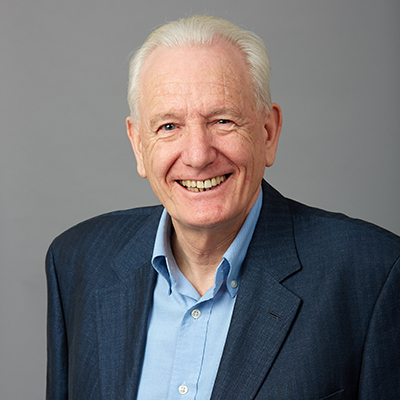Business as usual for the TIC sector
The UK’s plans to withdraw from the EU mean many businesses are preparing for a new future. With the withdrawal agreement still in ongoing discussions, former UKAS CEO Paul Stennett explains why businesses in the TIC sector should be confident of a bright future.
With 15 years at the helm of the United Kingdom Accreditation Service (UKAS) Paul Sennett is better placed than most to know. He outlines his main reasons:
UKAS has been and continues to work closely with the European Cooperation for Accreditation (“EA”).
“UKAS has been very active within the EA sphere of accreditation and has provided much technical support into EA, which is an organisation formally appointed by the European Commission under Regulation (EC) No 765/2008 to oversee accreditation activities within the European Union.” Indeed on 19 February UKAS announced it will remain an EA member for a two-year post-Brexit transition period and likely beyond. “As UKAS is the UK’s sole national accreditation body for the TIC sector, businesses in this space should feel reassured in the short to medium term. Even if we end up with a hard Brexit, there may still be options for UKAS to remain a full member of EA, thanks to the good relations between UKAS and its EA colleagues. “However, despite this positive view for most areas of conformity assessment, Notification activities will be severely affected.”
Notification bodies are taking steps to ensure they can operate post Brexit.
A notified body is an organisation designated by an EU country to assess the conformity of certain products to EU regulations before being placed on the market. If the final Brexit agreement does not permit the UK to become a member of the EAA or EFTA, or offer an option for Notification, then existing UK notified bodies will require accreditation from an EU member state accreditation body. UKAS has been actively supporting several UK-based notified bodies to gain accreditation with EU member state accreditation bodies during the past 12 months to help minimise business disruption. However, if there really is a “hard” Brexit then UKAS (and the Department of Business) has recently published details of a “UKCA” mark. In the event that there is no deal agreed between the UK and the EU by 29 March the new UKCA marking may need to be applied to certain products sold in the UK, such as toys and machinery, replacing the CE marking. This would almost certainly apply to all products imported to the UK, creating new business for UKAS-accredited notified bodies.
There is already a precedent in place for a trade template.
In the event of a no-deal Brexit, then the ideal template for trading with the EU is already out there: CETA.
This is the agreement in place between the EU and Canada which allows Canadian organisations to act as notified bodies. While this provides hope for continuity if successfully negotiated, Paul notes such an agreement could be three to five years away.
Products which don’t change do not need to seek new certification.
Paul points out that CE certificates remain valid even post Brexit as long as the products don’t change. But if a business updates its product, say the introduction of a new hairdryer model for example, then the CE mark will have to be tested separately in a European country or notified body accredited by a European member state accreditation body. In the case of a hard Brexit, the UK will likely have its own CE mark equivalent, which as mentioned previously will be the UKCA mark.
The TIC sector mostly works to international standards.
The value of international standards is that they are cited in WTO trade agreements, so it is vitally important in Europe that they remain recognised. If, due to a hard Brexit, UKAS is no longer able to remain a member of EA, then this will not invalidate UKAS accredited certificates. This is because UKAS certificates will retain global recognition by virtue of UKAS’ membership of ILAC and IAF, the global accreditation organisations for oversight of testing, inspection and certification.
In short, all is not lost for TIC businesses post Brexit. “Immediately following the Referendum, UKAS mounted a campaign of information and awareness in the then newly formed Department for Exiting the EU (DExEU) and the Department for International Trade (DIT) to make them aware of the importance of the TIC sector in underpinning international trade. They didn’t have much knowledge or understanding of the activities and importance of the TIC sector initially, but after a few meetings, both departments appreciated the strategic importance of the work of businesses in the TIC sector and how it underpins international trade agreements. I am pleased and relieved to say that as a result of these discussions, the EU Withdrawal Bill now incorporates legislation that will mirror European regulations, so that (as it currently stands) anything accredited by UKAS at the time we leave should in theory conform to, or perhaps more accurately, align with the European regulation relating to accreditation and the TIC sector (EC 765/08), thus making future agreement and working with the EU and EA slightly easier.”
Paul Stennett was Chief Executive of UKAS between 2003 and 2018. Prior to that he had a distinguished career in the food industry, where he held key directorial positions at leading blue-chip companies. Under his 15-year leadership, UKAS became increasingly influential as a key element of the UK’s business support infrastructure and a leading player in the international accreditation community.



